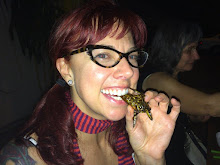A few thoughts on the history of Juneteenth, what really happened after people under enslavement were freed, and the current state of policing of Black communities by white cops:
1) June 19, 1965 was TWO YEARS AFTER the Emancipation Proclamation
2) In the Emancipation Proclamation, Lincoln allows many states to keep their slaves as long as they pledge alliance to the North. These states were allowed to keep their slaves until the 13th Amendment was ratified.
3) The 13th amendment (which STILL allows for legal slavery of folks in prison - many of whom are POCs who've been funneled into the system at a young age for profit) wasn't ratified until December 6, 1865 (six months after the Galveston, TX announcement).
4) Even after they were freed, these free men and women were told on that day in Galveston "to remain quietly at their present homes and work for wages. They are informed that they will not be allowed to collect at military posts and that they will not be supported in idleness either there or elsewhere" ("Juneteenth". Texas State Library and Archives Commission). Basically, they were freed then immediately told that if they don't continue to work for their former masters (but, for pay, so it's ok), relax anywhere (where they'd be deemed "idle"), or if they try to get anywhere near the guns (after they're brothers in the North had actually fought for the military), they'll be harassed by cops.
5) Since Lincoln was shot four months after the Proclamation, Andrew Johnson came into power and he was a big supporter of state's rights. The Civil Rights Bill (which Johnson vetoed, but was overrode) was established in 1966, and the backlash was that the southern states instituted "black codes" which are essentially the start of Jim Crow. Examples of the "black code" is that free Black people had to sign yearly labor contracts (at the low wages employers were willing to give); if they refused, they risked being arrested, fined and forced into unpaid labor, or laws prohibiting Black people from holding any occupation other than farmer or servant unless they paid an annual tax of $10 to $100. In addition, so-called “anti-enticement” measures were designed to punish anyone who offered higher wages to a black laborer already under contract. These codes were enforced by all-white police and militias made up of former Confederate veterans.
6) The North sent in troops to ensure "a period when they [Black folks, though men only] were allowed to vote, actively participate in the political process, acquire the land of former owners, seek their own employment, and use public accommodations" ("Civil War and Reconstruction." Library of Congress.) They were also supposed to provide safety to feed people from angry white mobs during this Reconstruction period. This is the period in which the KKK was formed. Despite the passage of the 14th ("equal protection" in 1867) and 15th (the right to vote in 1870) were passed, southern states didn't follow these Federal laws.
7) As soon as the troops were recalled in 1877, angry white mobs (many of which were led by the already formed KKK) immediately burned black businesses, lynched men in governing positions, and generally incited fear in free communities. This type of fear policing has not stopped since.
White policing of Black communities has been entrenched in US culture for so long, that when videos clearly show people being shot who aren't even resisting arrest (often for false reasons) the White populace sees justification.




